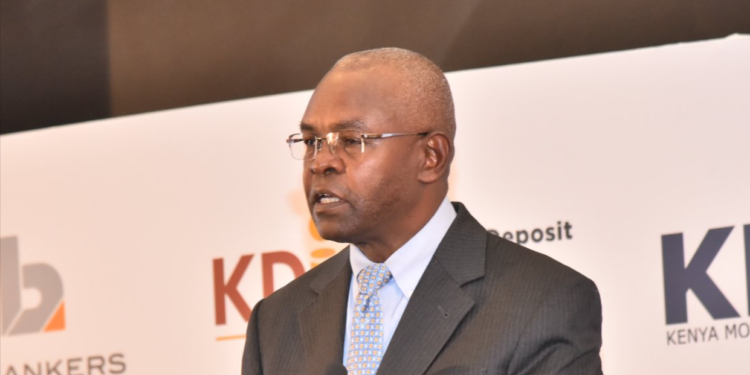The Central Bank of Kenya (CBK) has lowered its benchmark interest rate to 12.00% as inflation continues to decline and the country benefits from a stable exchange rate and easing global inflationary pressures. The move, announced on October 8, 2024, follows a review of the monetary policy stance by the bank’s Monetary Policy Committee (MPC), aimed at supporting economic growth while maintaining exchange rate stability.
The decision comes against the backdrop of an improved global economic outlook, with growth in major economies like the United States and India exceeding expectations. However, the MPC acknowledged ongoing risks, including heightened geopolitical tensions, particularly the escalating conflict in the Middle East, which poses a threat to global energy prices.
“The Committee noted that inflation has remained within target and that there is scope to ease monetary policy to support economic activity,” CBK Governor Dr. Kamau Thugge, who chairs the MPC, said in a statement. He added that the central bank would continue to monitor economic conditions and remain ready to adjust its stance if necessary.
Inflation Slows, but Economic Growth Softens
Kenya’s overall inflation fell to 3.6% in September, down from 4.4% in August, well below the mid-point of the central bank’s target range. The MPC attributed the drop to lower food prices, particularly for vegetables such as tomatoes, cabbages, onions, and potatoes. Fuel inflation also saw a sharp decline, dropping to 1.1% in September from 4.7% the previous month, driven by lower electricity and fuel prices. Non-food, non-fuel inflation, a key indicator of underlying inflationary pressures, eased to 3.4%.
Despite the favorable inflation outlook, Kenya’s economy has been experiencing a slowdown. According to recent GDP data, growth decelerated to 4.6% in the second quarter of 2024, down from 5.6% in the same period last year. This has led to a downward revision of the 2024 growth forecast, from 5.4% to 5.1%. The slowdown reflects weaker performance across several key sectors, although agriculture and exports remain robust.
Dr. Thugge noted that while the economy faces challenges, the central bank remains optimistic about the medium-term outlook, buoyed by the resilience of services and agriculture. “The resilience of key service sectors and the robust performance of agriculture are expected to continue supporting growth,” he said. However, risks from geopolitical tensions and potential disruptions to global supply chains remain.
Business Optimism Amid Challenges
Surveys conducted ahead of the MPC meeting indicated that Kenyan business leaders are cautiously optimistic about the country’s economic prospects over the next 12 months. The CEOs and Market Perceptions Surveys revealed a positive outlook for business activity, supported by the current macroeconomic environment, which includes low inflation, a stable currency, and expectations of further declines in interest rates. Nonetheless, concerns remain over the high cost of doing business, subdued consumer demand, and expensive credit.
The banking sector has also shown resilience, according to the CBK. Liquidity and capital adequacy ratios remain strong, although the level of non-performing loans (NPLs) rose to 16.7% in August, up from 16.3% in June. This increase was driven by challenges in sectors such as transport, personal and household lending, real estate, and manufacturing. Banks have, however, made adequate provisions for these bad loans, the CBK noted.
External Position and Global Trends
Kenya’s external position showed signs of improvement, with the current account deficit remaining stable at 3.8% of GDP in the 12 months to August 2024, compared to 3.7% a year earlier. Exports of agricultural goods, particularly tea, vegetables, and fruits, registered strong growth. Tea exports rose 3.9%, while vegetable and fruit exports grew by 14.1%. Meanwhile, remittances, a key source of foreign exchange, increased by 12.7% to $4.65 billion in the 12 months to August.
Tourism, another critical sector for Kenya’s foreign exchange reserves, saw a significant recovery, with arrivals up by 21.0% over the same period. The central bank’s foreign exchange reserves remain healthy, standing at $8.25 billion, equivalent to 4.24 months of import cover, providing a buffer against short-term shocks in the foreign exchange market.
Easing Monetary Policy as Global Inflation Moderates
The MPC’s decision to lower the central bank rate comes as inflationary pressures ease globally, prompting central banks in major economies to begin lowering interest rates. The US Federal Reserve, for instance, has already cut rates, and further reductions are expected in the coming months as inflation continues to moderate.
With inflation in Kenya expected to remain below the mid-point of the central bank’s target range in the near term, the MPC believes there is room to ease monetary policy further without jeopardizing exchange rate stability. “The recent decline in non-food, non-fuel inflation and the stable outlook for food prices due to improved supply from ongoing harvests support the case for this rate cut,” the MPC said in its statement.
The next MPC meeting is scheduled for December 2024, when the committee will again review economic developments and decide whether further policy adjustments are warranted.

















